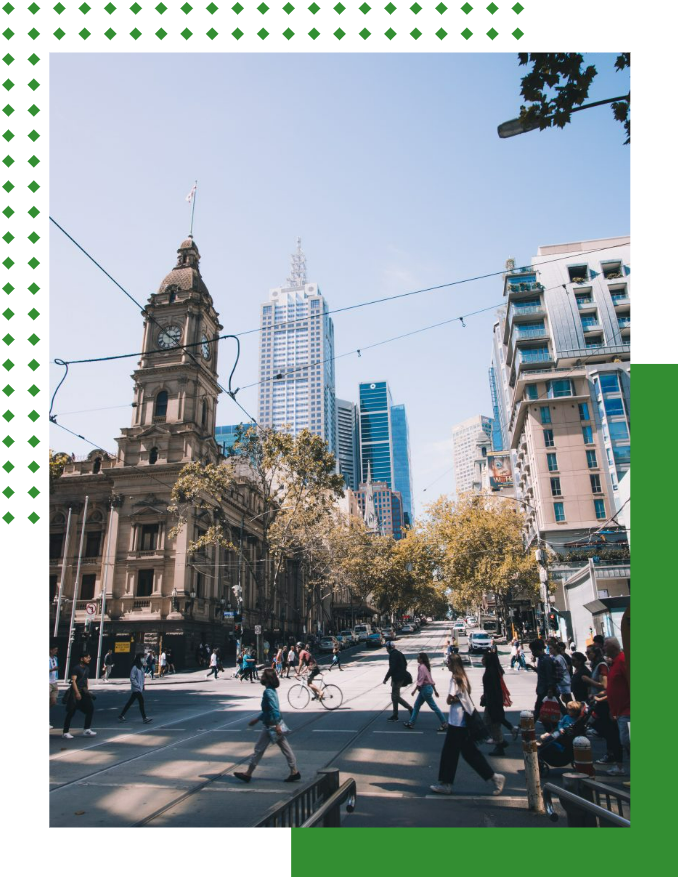SERVICES
Tax Controversy
With rapid changes in the tax environment, the number of financial reporting obligations is rising. As a result, many small businesses are operating without up-to-date reports, which diminishes their ability to accurately monitor, manage and understand how their business is performing. Carrazzo Consulting can get you back on track by providing expertise and support so that you can maintain your focus on what matters most to your business.

CARRAZZO CONSULTING
Our Tax Controversy Services
WE’RE HERE TO HELP
How Can Carrazzo Assist You
With Tax Controversy?
Carrazzo Consulting is an independent, full-service accounting firm that offers a holistic perspective to meet your personal and business needs. We have over 25 years of experience providing comprehensive services in all areas of taxation for individuals and businesses. When you entrust us with your tax, you get peace of mind knowing that our excellent customer service means prompt responses to our clients’ inquiries at all times.


TAX CONTROVERSY
What you need to know
-
Must a tax invoice show the amount of GST payable separately?
No. The tax invoice must show the GST inclusive price and need not show the GST separately if the GST payable is merely 1/11th of the GST inclusive price. If it is not 1/11th of the GST inclusive price, for example it is a mixed supply, the GST must be shown separately.
-
What is the “margin scheme” basis of calculating GST on a property sale?
If the margin scheme is applied to the sale of property, the GST is generally calculated on the difference between the price at which the property is sold and its acquisition cost. GST is, therefore, only payable on the vendor's "margin" for the sale.
However, if the property was acquired before 1 July 2000, then the GST is usually based on the difference between the price at which it was sold and the market value of the property at 1 July 2000 (this is known as the "valuation" method).
Note – the margin scheme is not available to vendors who were able to claim an input tax credit on the property when it was originally acquired.
According to the ATO, a vendor intending to use the margin scheme must choose to do so at or before the sale of the property, which is usually settlement.
-
A car is used partly for business. Can input tax credits be claimed?
If you are not registered for GST because, for example, you are an employee, you cannot claim input tax credits. Even if you are registered for GST, you cannot claim input tax credits in respect of the use of your car for employment purposes. If you run your business as a sole trader and are registered for GST, you will be entitled to input tax credits if you use your car for business purposes.
-
Can an entity that accounts for GST on a cash basis, pay the GST up front on a motor vehicle hire purchase and claim the input tax credits immediately?
No. The common consensus is that the hirer cannot make a lump sum payment for future GST up front and say all future monthly payments are simply the remaining GST exclusive amounts. The amount of input tax credit should simply be 1/11th of any amount paid.
Reminder - GST credits cannot be claimed for any new motor vehicles acquired before 1 July 2001.
-
What are the new small business depreciation write-offs from 2012/2013?
Beginning with the 2012-2013 tax year, businesses with a turnover of under $2 million can instantly write off any depreciating assets which cost $6500 or less. From a technology standpoint, that means that virtually any laptop you purchase can be written off immediately, rather than over a number of years. Many server systems would also fall under that threshold.
The limit applies to each individual item; if you purchased four $3000 notebooks for work, they would all be immediately written off, rather than being depreciated over a period of three or four years.
You still need to write off higher-priced assets over a number of years, but the rules are also simpler there; assets are added to a general pool and depreciated at 15 per cent for the first year and 30 per cent for each subsequent year.
From the 2012-2013 income year, a small business using the simplified depreciation rules can claim up to $5,000 as an immediate deduction for a motor vehicle costing $6,500 or more that it starts to use, or have installed ready for use, for taxable purpose.
-
I am about to go overseas on work, which records should I keep to substantiate my travel expenses?
If you received a bona fide travel allowance and the deduction exceeds the Commissioner's reasonable allowance amount, you must fully substantiate all travel claims by providing the following records:
1. details and evidence to support the type and specific amounts of allowance received for travel expenses, such as accommodation, meals and incidentals
2. details of specific overnight travel undertaken, including:
- dates or period travel was undertaken
- specific purpose of travel
- if the travel involves being away from home for six or more nights in a row, a travel record (diary) is required to be kept
3. evidence that you actually undertook the travel and incurred the accommodation and meal expenses, such as receipts or other documents.
If you did not receive a bona fide travel allowance or received a token travel allowance, you will be asked to keep the following records:
details of specific overnight travel undertaken, including:
- dates or period travel was undertaken
- specific purpose of travel
- if the travel involves being away from home for six or more nights in a row, a travel record (diary) is required to be kept.
- sufficient information to ascertain how specific expenses were incurred in the course of earning assessable income
-
In what circumstances can I claim Home Office Expenses?
The ATO will generally not allow a taxpayer to claim for expenses associated with their home office unless their employer considers it necessary for them to work from home and the following criteria can be established:
It is normal practice in the employee's industry to perform some work duties from home;
It is a part of their current job specification; and
It is a condition of their employment, although not necessarily evidenced/documented in writing.
Generally speaking, "running expenses" are able to be claimed by salary and wage earners who satisfy the above criteria, "Occupancy expenses" may be claimed by people running a business from home. For discussion as to what the ATO considers to be a "place of business", refer to Paul Carrazzo's feature article on this issue, published in the June 1999 issue of The Australian Bloodhorse Review.
-
Does a car log book have to be kept for every year?
A log book does not have to be kept every year. The business percentage is valid for five years. That is, the year that the log book is kept and the subsequent four years. Once you have established the business use percentage, you are not required to complete a new log book unless required to do so by the legislation, or otherwise directed in writing by the ATO. This business percentage is used as a basis for you to arrive at your reasonable estimate of the business use percentage in each income year as noted above.
Note: You must keep odometer records every income year.
-
I want to claim a deduction for using my car in my business or for employee duties. What is business travel?
Business travel is travel which is undertaken in gaining or producing your assessable income or carrying on a business for that purpose. Travel between home and a person's regular place of employment or business is ordinarily private travel. While travel to work is a necessary prerequisite to earning income, it is not undertaken in the course of earning that income. Put at its simplest, travel to work is private; travel on work is business.
-
What are the new small business depreciation write-offs from 2012/2013?
Beginning with the 2012-2013 tax year, businesses with a turnover of under $2 million can instantly write off any depreciating assets which cost $6500 or less. From a technology standpoint, that means that virtually any laptop you purchase can be written off immediately, rather than over a number of years. Many server systems would also fall under that threshold.
The limit applies to each individual item; if you purchased four $3000 notebooks for work, they would all be immediately written off, rather than being depreciated over a period of three or four years.
You still need to write off higher-priced assets over a number of years, but the rules are also simpler there; assets are added to a general pool and depreciated at 15 per cent for the first year and 30 per cent for each subsequent year.
From the 2012-2013 income year, a small business using the simplified depreciation rules can claim up to $5,000 as an immediate deduction for a motor vehicle costing $6,500 or more that it starts to use, or have installed ready for use, for taxable purpose.
-
I am about to go overseas on work, which records should I keep to substantiate my travel expenses?
If you received a bona fide travel allowance and the deduction exceeds the Commissioner's reasonable allowance amount, you must fully substantiate all travel claims by providing the following records:
1. details and evidence to support the type and specific amounts of allowance received for travel expenses, such as accommodation, meals and incidentals
2. details of specific overnight travel undertaken, including:
- dates or period travel was undertaken
- specific purpose of travel
- if the travel involves being away from home for six or more nights in a row, a travel record (diary) is required to be kept
3. evidence that you actually undertook the travel and incurred the accommodation and meal expenses, such as receipts or other documents.
If you did not receive a bona fide travel allowance or received a token travel allowance, you will be asked to keep the following records:
details of specific overnight travel undertaken, including:
- dates or period travel was undertaken
- specific purpose of travel
- if the travel involves being away from home for six or more nights in a row, a travel record (diary) is required to be kept.
- sufficient information to ascertain how specific expenses were incurred in the course of earning assessable income
-
In what circumstances can I claim Home Office Expenses?
The ATO will generally not allow a taxpayer to claim for expenses associated with their home office unless their employer considers it necessary for them to work from home and the following criteria can be established:
It is normal practice in the employee's industry to perform some work duties from home;
It is a part of their current job specification; and
It is a condition of their employment, although not necessarily evidenced/documented in writing.
Generally speaking, "running expenses" are able to be claimed by salary and wage earners who satisfy the above criteria, "Occupancy expenses" may be claimed by people running a business from home. For discussion as to what the ATO considers to be a "place of business", refer to Paul Carrazzo's feature article on this issue, published in the June 1999 issue of The Australian Bloodhorse Review.
-
Does a car log book have to be kept for every year?
A log book does not have to be kept every year. The business percentage is valid for five years. That is, the year that the log book is kept and the subsequent four years. Once you have established the business use percentage, you are not required to complete a new log book unless required to do so by the legislation, or otherwise directed in writing by the ATO. This business percentage is used as a basis for you to arrive at your reasonable estimate of the business use percentage in each income year as noted above.
Note: You must keep odometer records every income year.
-
I want to claim a deduction for using my car in my business or for employee duties. What is business travel?
Business travel is travel which is undertaken in gaining or producing your assessable income or carrying on a business for that purpose. Travel between home and a person's regular place of employment or business is ordinarily private travel. While travel to work is a necessary prerequisite to earning income, it is not undertaken in the course of earning that income. Put at its simplest, travel to work is private; travel on work is business.
Get in Contact
ABOUT US
Carrazzo Consulting provides high-quality accounting and tax advisory services. Our clients are typically successful, ambitious, and time-poor. They value our smart, practical advice, and trust us to safeguard their interests and assets.
DISCLAIMER: The information contained herein is intended to afford general guidelines on matters of interest. Accordingly, the information on this site is not intended to serve as legal, accounting, or tax advice. Carrazzo Consulting disclaims all warranties with regard to this information, including all implied warranties of merchantability and fitness for a particular purpose. In no event shall Carrazzo Consulting be liable for any special, indirect, or consequential damages or any damages whatsoever resulting from loss of use, data, or profits, whether in an action of contract, negligence, or other tortuous action, arising out of or in connection with the use or performance of this information.
